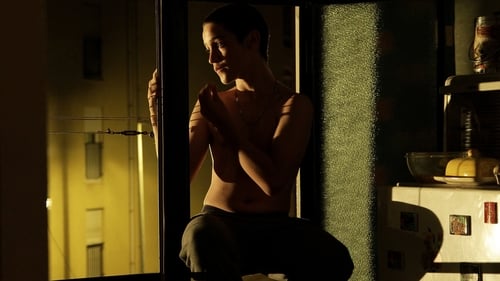João Bénard da Costa: Others Will Love the Things I Have Loved (2015)
장르 : 다큐멘터리
상영시간 : 1시간 15분
연출 : Manuel Mozos
시놉시스
Director Manuel Mozos draws an intimate portrait of João Bénard da Costa, programmer, critic, actor and, for 18 years, director of the Portuguese Film Museum, who passed away in 2009.

Dr. Charon and his group of mad scientists built a neutron bomb with trying to blackmail the free world for global power. But the hero appears, Neutron, who, with the help of Dr. Thomas and reporter Nora spoil those plans.

A sheltered aristocratic woman in feudal Japan, bored and unfamiliar with the world outside her estate, passes the time copying a special Buddhist sutra sent by her father who has been absent on official business for years. While gazing out her window one late afternoon, the setting sun creates a vision of a holy figure in the distant mountains.

In order to stop a vampire from terrorizing the countryside, some locals decide to break into his coffin at night and steal his ashes. Complications ensue.

Vampire hunters track down a vampire and attempt to steal the ashes from his coffin in order to stop him from reviving nightly.

In this East German film, the third one in The Third is Margit's third lover. After her mother's death, Margit has two affairs which don't work out, and one lesbian friendship which she retains. She is looking for a husband, though, and thinks she has spotted a candidate in her fellow factory worker. As she contemplates marrying him, her story is told in a series of flashbacks.

In the beginning the idea was to make something from nothing, in a neutral and unknown place. Collect images and sounds instead of producing them. The camera, the microphone and the mini-amplifier: tools that take away and then give back. We defined a rule: the sound shouldn't illustrate the image and the image shouldn't absorb the sound. Less than a hundred kilometres from Reykjavik we found Strokkur. For three days we saw and heard the internal dynamics of the crevice: the boiling water that spat out every seven minutes and the thermal shock, given the eighteen degrees below zero of the atmosphere.

이윤을 넘어 오직 인간만이 창출 가능한 가치에 대해 논하는 올해의 주목해야 할 포르투갈 영화. 야음을 틈타 기계들이 반출되자 공장 노동자들은 일자리를 잃을까 봐 노심초사한다. 노사 간에 충돌이 일어나고 공장은 반쯤 비게 된다. 하지만 이와 동시에 새로운 비전도 보이기 시작한다. (2017년 제22회 부산국제영화제)

Lisboners (people of Lisbon) celebrates the ancient notion of citizenship, the right to the city in the making, in each migrant’s daily life, living and working. It is set in Lisbon but it happens in London, New York, Paris, Rome… anywhere. The Lisboners are people from Brazil, Guiné-Bissau, Nigeria, China, Pakistan, India and Bangladesh, Ukraine, Moldavia, Russia, and Estonia.

The tribulations of two friends who, in despair, start begging from door-to-door, and are given a bundle including, literally, a pair of deadman's shoes

The film follows soldiers escape and wander, talk, and drift aimlessly.

A rare panorama of Cuban music and dance from the 1960s. Featuring legendary Cuban musicians as well as vibrant spontaneous performances, We Are the Music captures the mood and vitality of Havana during its golden period.

천재 시인 로렌조 다 폰테와 천재 작곡가 모짜르트의 운명적 만남!
신부가 되려던 다 폰테는 방탕한 생활로 베니스에서 추방당한다. 다 폰테의 시적 재능을 높이 산 카사노바의 도움으로 음악의 도시 빈에서 새로운 인생을 시작한 그는 모짜르트와 함께 오페라 ‘피가로의 결혼’으로 큰 성공을 거두지만 그의 자유로운 생활은 계속된다. 다 폰테의 성공을 축하하던 카사노바는 자신을 모델로 ‘돈 조반니’를 새롭게 만들 것을 제안하고, 다시 한번 최고의 오페라를 만들기 위해 고심하던 그는 모짜르트를 설득해 오페라 작업을 시작한다. 아름다운 여인 아네타의 마음을 얻기 위해서라면! 베니스에서 아쉽게 헤어졌던 아네타와 우연히 재회한 다 폰테는 아름답고 순수한 그녀의 매력에 빠져든다. 용기를 내 아네타에게 사랑을 고백하지만, 지난날 그의 자유로운 여성 편력에 진심을 믿지 않고 냉정히 돌아서는 그녀... 다 폰테는 아네타에게 자신의 진심을 전하기 위해 새로운 결말의 ‘돈 조반니’를 써내려 가기 시작하는데…

Shiro and Keita didn’t manage to enter university and are stuck in their hometown delivering newspapers. Shiro persists on finishing a film they started, but Keita is not very enthusiastic.

Brief, fragmented memories of Rohmer spoken by Godard, while the screen shows various titles of articles Rohmer wrote for Cahiers du Cinema.

Accompanied by the insistent shrilling of an alarm clock and by two love songs, a young man struggles to wake up.

An anthology film following different stories around the theme of invisibility in the modern world.

In Africa, during the colonial war, a patrol is lost in the bush and a soldier dies in operation. Twelve years later, in Portugal, the soldier family meets in peace.

HIGH SCHOOL II is a film about Central Park East Secondary School (CPESS), a successful alternative high school in New York's Spanish Harlem, 85-95% of whose graduates go on to four year colleges. The film illustrates the school's emphasis on the “Habits of Mind” program (weighing evidence; awareness of multiple points of view; seeing connections and relationships; speculating on possibilities; and assessing values.) Sequences illustrating the school's approach to learning include: classroom activities in the humanities and sciences; family conferences; discussions of race, class, and gender; faculty meetings; disciplinary problems; sex education; conflict resolution by students; and student council meetings.

An experimental and surreal film, a mix of weird and unusual "avant-gard" cinematography with some traditional icons of the Portuguese culture, like Fado or the typical neighbourhoods of Lisbon, in this case the "Bica" is a typical neighbourhood which is used as setting to the plot.

Rafa is a 13 years old kid concerned with his mother, held in a police station for driving without a license. The director shows a day in the life of a teenager who lives on a problematic area and discovers that her mother was arrested because of an automobile accident.











